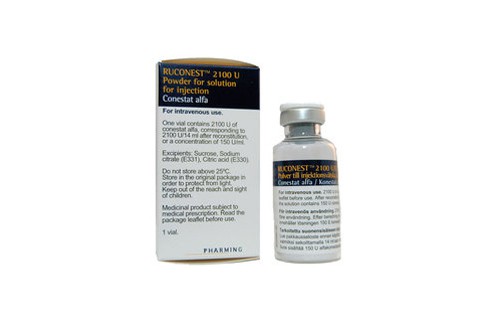
US regulators this week approved a new drug derived from the milk of genetically-modified rabbits to treat a rare swelling disorder.
Ruconest is developed in partnership by Salix Pharmaceutical and Pharming and is intended as a protein replacement in people with hereditary angioedema.
The disease affect between 6,000 and 10,000 people in the US and leads to rapid swelling of the hands, feet, limbs, face, intestinal tract or airway. Its triggers include stress and infection.
Due to the rarity of hereditary angioedema the FDA assessed Ruconest as an orphan drug – a regulatory classification that offers incentives to company’s developing drugs for rare disorders. The approval covers the drug’s use in the treatment of acute attacks of hereditary angioedema in adults and adolescents.
The drug works by topping up levels of a plasma protein called C1-esterase inhibitor, insufficient levels of which are a characteristic of hereditary angioedema.
Salix and Pharming have been able to produce the replacement protein by breeding rabbits that have the gene that produces the human C1 inhibitor protein. This gene is then collected from the milk of these rabbits, meaning that no patient with a history of allergy to rabbits should take Ruconest.
The drug has demonstrated is safety and efficacy in a clinical trial involving 44 patients with acute attacks of hereditary angioedema, providing symptom relief in 90 minutes compared to 152 minutes for people on placebo.
The FDA approval means US patients now have access to a drug that targets the symptoms directly rather than the ongoing treatment of CSL Behring’s Berinert or Shire’s Cinryze, which is intended to prevent swelling attacks.
“Until now, there hasn’t been an FDA approved recombinant C1 esterase inhibitor option to treat symptoms of hereditary angioedema,” said Carolyn Logan, CEO of Salix. “The unpredictability of hereditary angioedema can make patients feel uncertain about when their next attack might strike, which is why it is important to have a medicine that can be administered by the patient that resolves an attack.”




